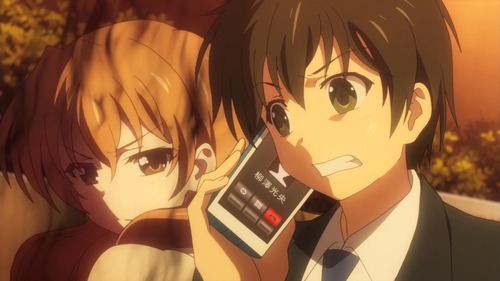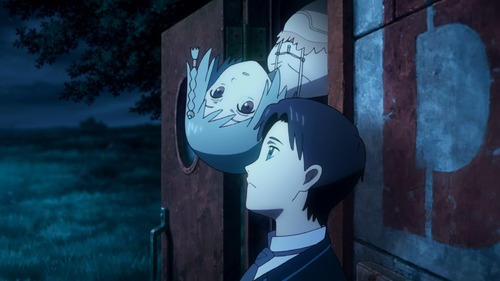2014 anime, the less-bulleted edition, part 2
Part one’s not too far away.
Ping Pong
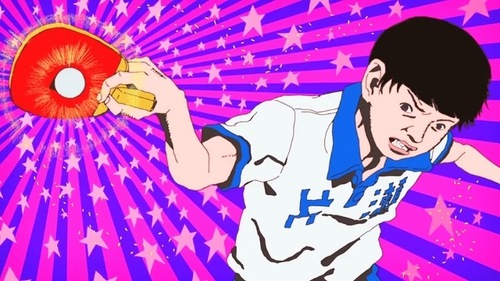
It’s obvious that noitaminA has been getting more hit or miss lately – outside of Silver Spoon’s second season, Ping Pong is probably the only show that aired in the block’s 2014 schedule that’s really worth a watch. If you need a forceful case that the glory days aren’t totally over yet, though, this is it. The most obvious highlight is Masaaki Yuasa’s stylized visual treatment, which bursts with an unrestrained energy that The Flowers of Evil’s quivering linework only wishes it had. Like the best of sports shows before it, Ping Pong spends as much time getting us inside the characters’ heads as it does showing actual play, especially in the case of the show’s dual protagonists. And its Chinese cast members are actually portrayed by Chinese voice actors, one of whom is also fluent in Japanese! Seal of approval right there.
Tonari no Seki-kun
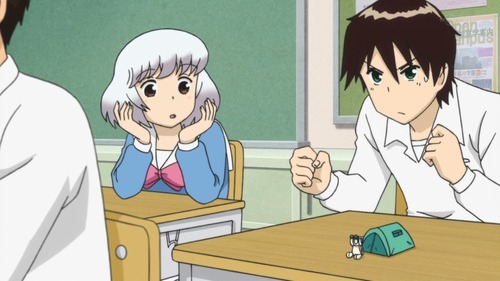
You might think that getting heavy hitters like Kana Hanazawa and Hiro Shimono to do a seven-minute comedy series whose premise can be summed up as “high school kid builds crazy things at his desk” is excessive, especially given that one of them never actually speaks at all. Tonari no Seki-kun, however, is one of those shows that lives or dies on its execution, and the investment demonstrably pays off. Maybe it’s because Hanazawa has been in every show from here to nigh eternity, but her exaggerated reactions to the title character’s antics make a terrific stand-in for our own bewildered amusement as the viewers. As for Shimono, meanwhile, you’d be surprised how expressive a few well-placed grunts and sighs can be. (He was apparently really pumped up during the dubbing sessions.)
Monthly Girls’ Nozaki
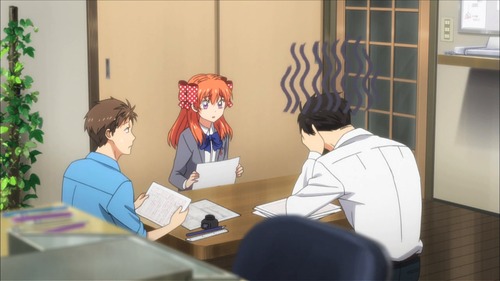
Yes, I’ve saved the best for last. It’s hard to describe what makes a funny thing funny without destroying the experience altogether, of course, but if I had to boil down the essence of Nozaki’s success, it would be its refreshing confidence in its own humor. There are no sly winks and nods attempting to make up for lackluster jokes, no lazy archetypal gags, and no phoned-in characterizations. It’s just a show that clearly enjoys itself, and earnestly wants you to join in on the fun. The gentle shots at shoujo clichés are icing on the cake.
Ari Ozawa’s performance as our main heroine Chiyo (that’s her in the orange there) deserves special mention. Ozawa put in a lot of voice acting legwork to keep the fast-paced bits hanging together, often moving from starry-eyed fascination to illusion-free sarcasm in the span of a line or two, and the results speak for themselves. It’s these unpredictable turns from her and the other cast members that keep the show so consistently fresh.
Postscript
Monogatari Series turned in another pair of solid entries last year. I’ve long given up on being able to judge the franchise on objective merits alone, but if you’re anything like me, Hanamonogatari and Tsukimonogatari are still the old friends you’ve come to cherish.
Shirobako and April Is Your Lie, two shows that started in 2014, but won’t end until this spring, are sitting pretty on my current list for 2015. Watch this space.
